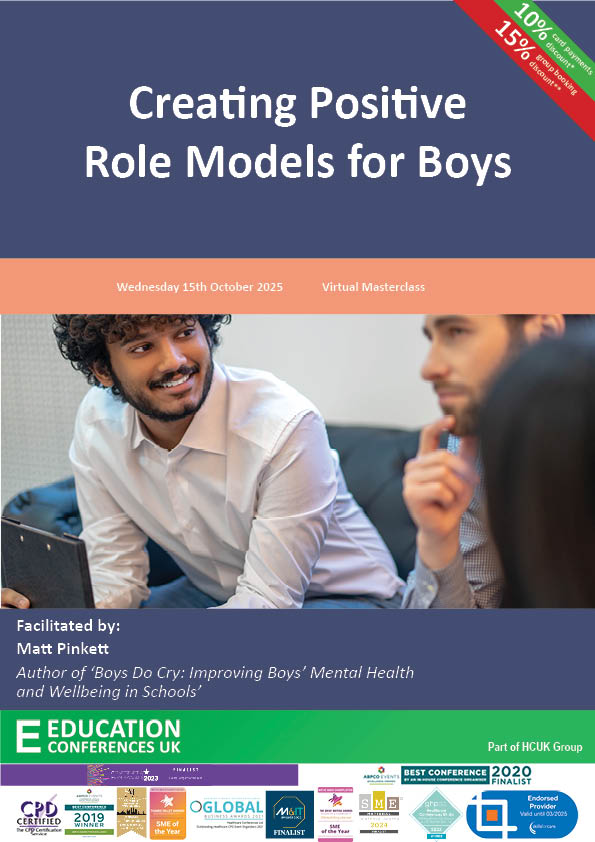This course explore show educators can consciously create positive role models for boys by challenging traditional gender norms, reflecting on their own practices, and fostering environments that promote emotional literacy, empathy and resilience. Through reflective discussions, practical strategies, and real-life scenarios, participants will develop the tools to support boys in forming healthy, authentic identities.
This thought-provoking, practical training is designed to empower educators to become intentional role models, shaping environments where boys can thrive beyond restrictive gender norms.
Participants will explore how societal expectations, media, and school culture influence boys’ identities, mental health and behaviour. Through reflective activities and discussion, we’ll challenge common assumptions about masculinity and consider how these impact the classroom.
Educators will also examine their own behaviours, biases, and the subtle messages they send through language, expectations and discipline. By reflecting on personal role models and looking at real classroom scenarios, participants will identify areas where unconscious gender norms may be at play.
This course isn’t just about supporting boys - it’s about shaping a more inclusive, emotionally intelligent school culture for all.
WHO SHOULD ATTEND
Teachers, School Leaders, Pastoral Staff FACILITATOR Matt Pinkett has been teaching English for over a decade. In addition to this, he has also co-authored Amazon Top 100 bestseller, ‘Boys Don’t Try? Rethinking Masculinity in Schools’ and authored, ‘Boys Do Cry: Improving Boys’ Mental Health and Wellbeing in Schools’.
KEY LEARNING OBJECTIVES
By the end of this masterclass, you will understand how to:
Identify and challenge societal and cultural influences that shape boys’ perceptions of masculinity and impact their behaviour, emotional wellbeing, and academic engagement.
Reflect critically on your own role as an educator, recognising the implicit messages you convey through language, expectations, and interactions with boys.
Recognise unconscious biases related to gender and understand how they can influence classroom dynamics, discipline practises, and pastoral care.
Apply practical strategies to foster emotional literacy, resilience and empathy in boys, creating environments where they feel safe to express vulnerability and authentic identities.
Respond effectively to gendered behaviours such as ‘banter’, emotional withdrawal, or displays of dominance.






